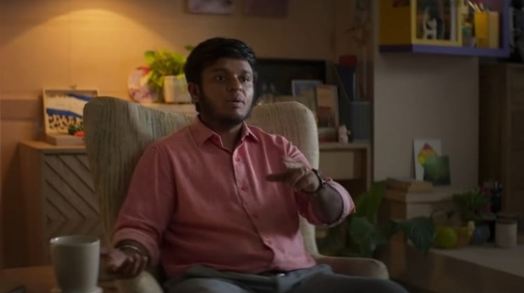In Transit review: 9 transgender individuals come together to share their truth in this thoughtful and probing docuseries backed by Zoya Akhtar and Reema Kagti.

What does it mean to be visibly trans in India? There’s no whataboutery about the fact that India is still largely homophobic; one look at the cases of violence on the LGBTQ+ community is enough to show why. The new four-part docuseries, backed by Zoya Akhtar and Reema Kagti’s Tiger Baby Films, attempts to bring together stories of nine transgender individuals across India as they share their lives, hearts, and hopes. It is a vital, sensitively drawn-out portrait of the challenges faced by the trans community in modern India.
Authentic and vital portrait
Zoya Akhtar and Reema Kagti had previously cast trans actor Trinetra Haldar Gummaraju in the second season of Made in Heaven for the new addition to the show, Meher. That character was in a supporting role, adding to the drama and resolving the chaos around the main plot. From there to In Transit, the resolve to showcase the trans community authentically is a noble effort. In Transit is curious but in a careful manner, where the camera is but a medium for these individuals to share their experiences with complete trust. That confidence shows in the way Archana Ghangrekar places the camera and views these people, and in the conviction with which director Ayesha Sood draws out their life stories with a degree of vulnerability.
There is a beautiful moment where Aryan speaks about his desire for a ‘connection’. It arrives after Aryan has shared the story of transition, where the viewer can see the journey he has been through. Another particularly indelible revelation arrives when Rumi, a trans man and a trained classical singer, talks about the difficult relationship with his mother. When he gradually comes to know why his mother, who was a sculptor, behaved the way she did, it becomes an extraordinary moment of surrender and reconciliation. I had shivers all over my body when that moment arrived.
Gender and sexual identity are not the same, and In Transit does well by letting these voices speak for themselves on this concept. There’s something somber about it, in the way these people who have had to fight for their truths all the way through, speak about their desires and hopes. Despite the tears, there are footnotes of hope. The story of Patruni, a gender-fluid drag queen, is insisted carefully here.
The interrogation is nurtured at the idea of giving every desire a name, every experience a definitive call. Even within the community, how must a trans woman perform? How are they expected to behave? These ideas arrive from a deeply heteronormative culture. As these individuals will only take a willingness to unlearn and reorient the ways we look, categorise, and decide.
Final thoughts
This docuseries intelligently positions the multiplicity of trans experience in a country that has extreme inequity due to class divisions. Access to education, the support of parents, and the socio-economic classifications are some of the most important factors that these individuals have to confront. It is more than just acceptance; it is also about access. This is a sensitively told document that never resorts to being complacent in its tone, which is perhaps its biggest accomplishment.







